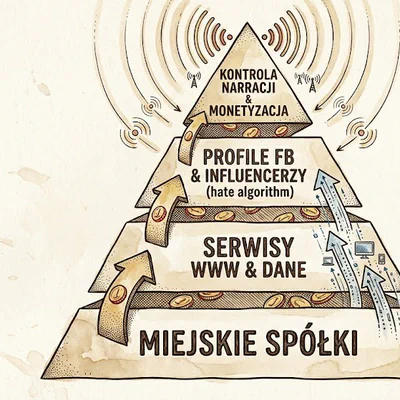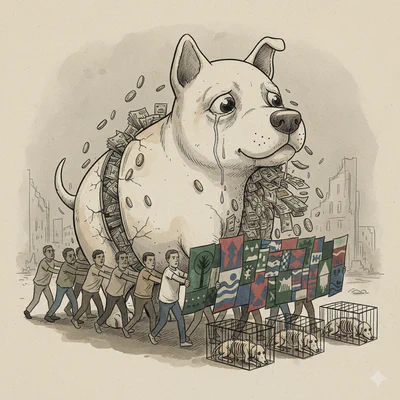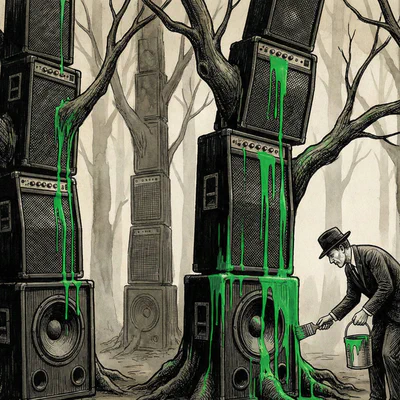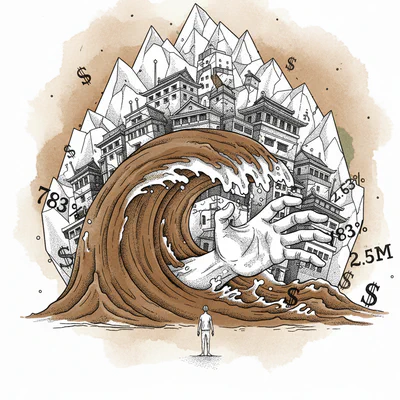An introduction to a critical analysis of contemporary urban activism from an insider's perspective. The text exposes the mechanisms of media activism, the echo chamber problem, and shows how actions seemingly against the system may actually support it.
Note: Any resemblance to actual persons or institutions is purely coincidental.
Crisis of Modern Activism?
After years of involvement in local urban activism, it’s time for bitter reflection. Observing the mechanisms of contemporary activism up close, I notice disturbing phenomena. More and more valuable people are giving up social activities, while others - treating activism as a profession or a tool for building their image - waste their potential on worthless actions. Perhaps we should diagnose the problem more deeply? Maybe the very functioning of activists plays into the hands of the forces they are theoretically fighting against?
You’ll surely say: “But how? They are visible, they raise awareness, they act!” I’ll respond that there’s a long way from talking and writing petitions or official inquiries to real change. I follow certain NGO projects that are publicly labeled as valuable activism. I see how they spend years in fruitless discussions and use millions in grants without achieving any concrete effects.
Pacifying Activism - The Golden Cage of the “Echo Chamber”
[Note: In Poland, urban activism has become particularly prominent since the early 2000s, often focusing on issues like sustainable development, public spaces, and local democracy]
Modern urban activism increasingly boils down to image-building actions that I would frankly call event-based. I’ve noticed a disturbing trend - people only want to participate in what can be later shown on Instagram, tagged, and reported. Implementation of anonymous actions is frowned upon because they don’t bring publicity. This way, event-based and social media activism celebrates real triumphs, turning into pure pretense of action.
Activists I once admired now focus mainly on building reach in social media and organizing pseudo-events. They don’t realize that by moving their activity to Facebook or Twitter, they become hostages to algorithms. We painfully learned this after Elon Musk’s Twitter takeover (I described this in this article). A golden cage emerges - a space of apparent influence with no exit, because every action must be “for show.” It’s a perfect control tool for business and politicians - they see exactly who does what by tracking comments, likes, and public fundraisers.
Commercialization of Activism - Powdering a Corpse
The system effectively manages activism according to the old principle of “divide and rule.” Local government officials and politicians deliberately apply a carrot-and-stick policy - funding “well-behaved” initiatives while ostracizing groups raising uncomfortable topics. This is particularly painful in poor and backward Łódź [Note: A major Polish city known for its post-industrial character and complex social issues]. Professional activists have emerged in this urban space - people who have turned social activity into a business model.
I can’t disagree that such activists generate certain results, but they are superficial and don’t lead to deeper changes. They organize training sessions, workshops, and protests - one after another - but never disturb the status quo. Facebook perfectly utilizes these closed communities where people endlessly comment, criticize, and hate, spending hours watching ads. Instead of real influence, we have a digital theater of appearances that serves big business interests well. I call such activism putting lipstick on a pig.

Puppets of the System
The mechanisms for controlling narratives in urban activism are surprisingly simple and effective. Authorities have a range of tools - from distributing rewards in the form of participatory budgeting [Note: A system where citizens can propose and vote on local projects] to subtle forms of ostracism. In the age of social media, where every action must be “Instagrammable,” the possibilities for manipulating or ridiculing inconvenient initiatives are practically unlimited. I even have the impression that activists criticizing their opponents’ or politicians’ posts or profiles are free workers creating discussion and the illusion of debate while triggering the hate algorithm pumping that politician even higher in position. So who gains? I leave that to your judgment.
I observe how valuable activists, seeing this state of affairs and the trap of activism, often completely give up their activities, discouraged by the growing polarization and the fact that they fulfill a supporting function. Instead of dealing with systemic urban problems, activism often boils down to organizing cycling events or planting tulips - actions that look great on Instagram but don’t solve real social problems. Because is preparing an official inquiry, which is merely a question without follow-up, solving the problem? People liking these actions on social media certainly can’t assess this realistically, because if they could, the number of likes would drastically decrease.
Untapped Potential
Paradoxically, tools exist that could increase the effectiveness of civic actions - such as the social assistant function [Note: A legal mechanism in Poland allowing citizens to delegate authority in administrative matters], enabling delegation of authority in offices. However, they remain unused. Are we living in times when ignorance has become a strategy, and showmanship has replaced effectiveness?
I’d like to have some hope for activism, but looking at media-focused, event-based actions that often don’t give any real effect beyond improving the mood of participants and their friends. From my experience, only acting in secrecy combined with disinformation, partial community information (to introduce knowledge asymmetry), and behind-the-scenes work of LAWYERS and specific individuals yields results.
Covert Actions and the Project of Information Asymmetry
Standing at the crossroads between continued engagement and withdrawal, I ask myself: is it worth sacrificing mental health and energy to fight in a system that seems programmed to neutralize real changes? Is a city, a state, whose residents seem not to care about their own problems, ready for deeper reforms? Will a neighbor who asks how are our matters going while packing their family for departure to move far away, or locally bought ambassadors of business and politicians appreciate the work of an activist who is subjected to a process of continuous depreciation?
Maybe it’s time to rethink the definition of effective activism? One that won’t come down to the number of likes under posts but will actually serve the community or nature? The question is, is this even possible in the current system? By system, I mean the golden cage of narcissism.
I intend to develop this topic in subsequent articles, analyzing both local NGO initiatives and individual activists’ actions - similar to my analysis of the parliamentarian’s inquiries or other texts related to activism that I’ve already published.





